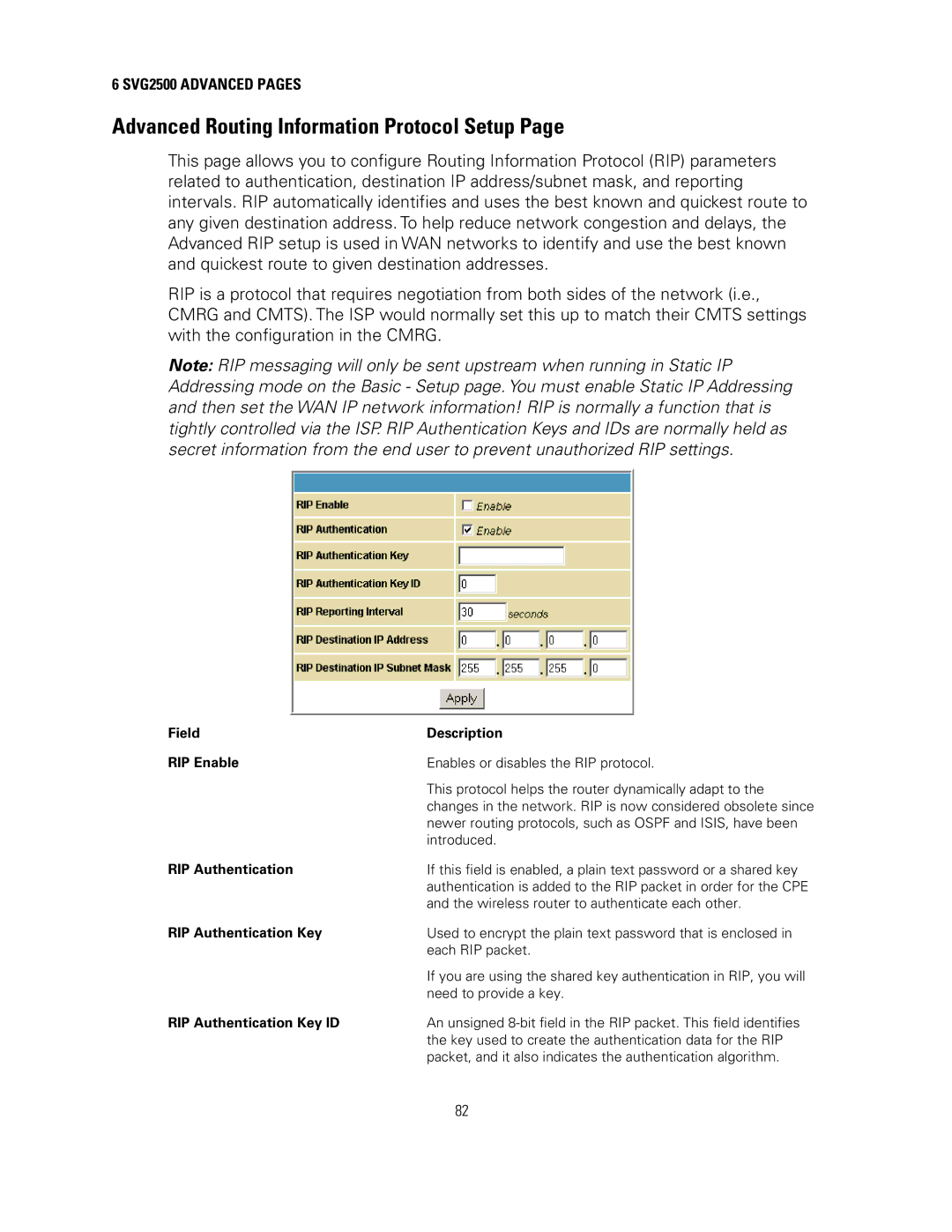
6 SVG2500 ADVANCED PAGES
Advanced Routing Information Protocol Setup Page
This page allows you to configure Routing Information Protocol (RIP) parameters related to authentication, destination IP address/subnet mask, and reporting intervals. RIP automatically identifies and uses the best known and quickest route to any given destination address. To help reduce network congestion and delays, the Advanced RIP setup is used in WAN networks to identify and use the best known and quickest route to given destination addresses.
RIP is a protocol that requires negotiation from both sides of the network (i.e., CMRG and CMTS). The ISP would normally set this up to match their CMTS settings with the configuration in the CMRG.
Note: RIP messaging will only be sent upstream when running in Static IP Addressing mode on the Basic - Setup page. You must enable Static IP Addressing and then set the WAN IP network information! RIP is normally a function that is tightly controlled via the ISP. RIP Authentication Keys and IDs are normally held as secret information from the end user to prevent unauthorized RIP settings.
Field | Description |
RIP Enable | Enables or disables the RIP protocol. |
| This protocol helps the router dynamically adapt to the |
| changes in the network. RIP is now considered obsolete since |
| newer routing protocols, such as OSPF and ISIS, have been |
| introduced. |
RIP Authentication | If this field is enabled, a plain text password or a shared key |
| authentication is added to the RIP packet in order for the CPE |
| and the wireless router to authenticate each other. |
RIP Authentication Key | Used to encrypt the plain text password that is enclosed in |
| each RIP packet. |
| If you are using the shared key authentication in RIP, you will |
| need to provide a key. |
RIP Authentication Key ID | An unsigned |
| the key used to create the authentication data for the RIP |
| packet, and it also indicates the authentication algorithm. |
82
